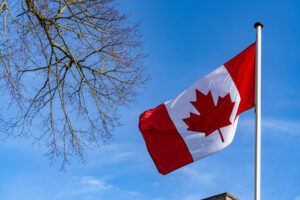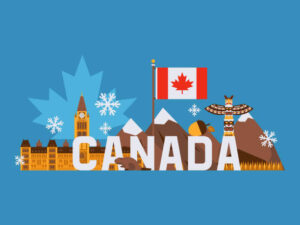Understanding the different documentation requirements for travel to the U.S. can be a daunting task, especially for Canadian citizens. While the ESTA program simplifies travel for many international visitors, it’s essential to note that Canada is one of the exceptions to this requirement. This guide will walk you through the specifics, including why Canadians are exempt, which other countries are exempt, and the different rules for Canadian citizens and landed immigrants.
Travel Documentation for Canadian Citizens
Navigating the array of documentation for international travel can be complex. Canadian citizens planning a trip to the United States need to be aware of the specific requirements to ensure a hassle-free journey. The required documents serve multiple purposes, including:
- Confirming your identity
- Asserting your nationality
- Facilitating a smoother immigration process
Being meticulous in your preparations can prevent potential legal complications upon arrival in the United States.
Required documentation for Canadian Citizens Entering the United States
A valid passport is the standard requirement for Canadian citizens flying to the United States, a regulation established by the U.S. Department of Homeland Security. The universally accepted validity of a passport makes it a primary method for confirming nationality and identity. For those traveling by land or sea, however, alternative documents may be accepted:
- A NEXUS card: Facilitates expedited border crossings between the U.S. and Canada for frequent travelers.
- An Enhanced Driver’s License (EDL): Serves as proof of identity and citizenship, and can be used for land or sea travel.
Importance of Proof of Citizenship and Government-Issued Photo ID
Holding valid proof of citizenship and a government-issued photo ID is a travel essential. These pieces of identification serve to:
- Authenticate your identity
- Establish your nationality
- Speed up the immigration process
Being denied boarding a plane or entry into your destination due to insufficient identification is an inconvenience best avoided. Proper documentation is particularly crucial when dealing with immigration procedures.
Distinction Between Land Border Crossings and Air/Sea Entries
The required documentation for land and sea travel offers more flexibility compared to air travel. Acceptable documents for land and sea entries include:
- An Enhanced Driver’s License (EDL): Provides proof of identity and citizenship.
- A FAST card: Expedites border crossing for frequent travelers, primarily truck drivers.
It’s essential to remember that air travel rules are slightly different. In general, a valid passport is required by U.S. authorities for air travel. Understanding these distinctions can help ensure you’re adequately prepared for your trip to the United States, regardless of your mode of travel.
U.S. Entry Requirements for Canadian Landed Immigrants
Canadian landed immigrants, or permanent residents, can face a range of entry requirements when traveling to the U.S., depending on their country of origin. It’s essential to understand the specific documentation and procedures required to avoid any last-minute complications or denied entries.
Explanation of the ESTA Requirement for Canadian Landed Immigrants from Visa Waiver Countries
For Canadian landed immigrants hailing from Visa Waiver Program (VWP) countries, it’s crucial to be aware of the Electronic System for Travel Authorization (ESTA) requirements. ESTA is an automated system that determines the eligibility of visitors under the VWP. These travelers are required to:
- Apply for an ESTA prior to their departure
- Receive approval of their ESTA, typically confirmed within 72 hours
- Present their ESTA approval when boarding a flight or ship to the U.S.
Keep in mind that an approved ESTA is not a visa but a pre-travel screening for individuals traveling under the VWP.
Mention of Form I-94W for Land Border Crossings
For land border crossings into the U.S., Canadian landed immigrants from VWP countries may need to complete Form I-94W, also known as the Nonimmigrant Visa Waiver Arrival-Departure Record. This form documents a traveler’s admission to the U.S. and the duration of their stay. The key steps involved in this process include:
- Collecting Form I-94W at the border checkpoint
- Completing all sections accurately and honestly
- Presenting the completed form to the U.S. Customs and Border Protection officer for review and approval
Clarification for Canadian Landed Immigrants from Non-visa Waiver Countries
Canadian landed immigrants from non-VWP countries have a different set of requirements. They generally need to apply for and obtain a valid U.S. visa before their departure. The process for obtaining a U.S. visa usually involves:
- Filling out the appropriate visa application form, depending on the visa type
- Scheduling and attending a visa interview at the U.S. embassy or consulate
- Awaiting approval and issuance of the visa
Remember, visa requirements can vary based on the specific circumstances of the traveler, including their country of origin and the purpose of their visit, so it’s always a good idea to verify the details from a reliable source.
U.S. Visa Application for Canadian Citizens
Although it’s not usually necessary for Canadian citizens to obtain a U.S. visa for brief visits, there are circumstances where a visa application might be beneficial or required. This includes scenarios like long-term stays or seeking employment in the U.S.
Overview of Canadian Citizens’ Ability to Apply for a U.S. Visa
While Canadian citizens generally enjoy visa-exempt status for travel to the U.S., they also have the option to apply for a U.S. visa. This can potentially simplify the travel and entry process in certain situations. The process typically includes:
- Determining the appropriate visa type based on the purpose of the trip
- Completing the online visa application form
- Scheduling and attending a visa interview at the U.S. Embassy or Consulate
Circumstances in Which Canadian Citizens May be Required to Apply for a Visa
There are certain circumstances under which Canadian citizens are required to secure a U.S. visa. These situations include, but are not limited to:
- Planning to work in the U.S.
- Intending to study in the U.S.
- Anticipating a long-term stay in the U.S.
- Having a criminal record
Each of these situations requires a specific type of visa, which must be obtained before arrival in the U.S.
Encouragement for Nonimmigrants with Expired Visas to Apply for a Visa at U.S. Consulates or Embassies
Canadian citizens holding expired U.S. nonimmigrant visas are encouraged to renew their visas before their next trip to the U.S. The renewal process usually involves:
- Completing the online application form
- Paying the visa fee
- Scheduling and attending a visa interview at a U.S. Consulate or Embassy
- Renewing an expired visa can prevent travel complications and ensure a smooth entry process.
Mention of the Visa Categories and the Need to Apply at a U.S. Consulate or Embassy
Depending on the purpose of their travel, Canadian citizens may need to apply for specific visa categories. For example:
- B-2 visa for tourism or visiting family and friends
- H-1B visa for temporary work in specialty occupations
- F-1 visa for academic studies
These visa applications must be submitted to a U.S. Consulate or Embassy in Canada, following the guidance provided on the websites.


